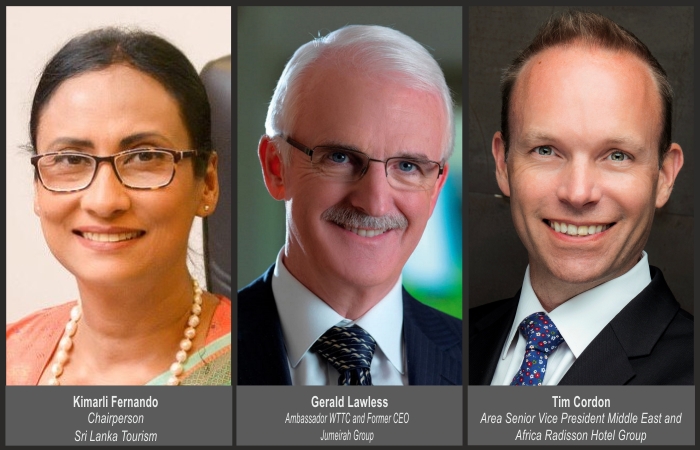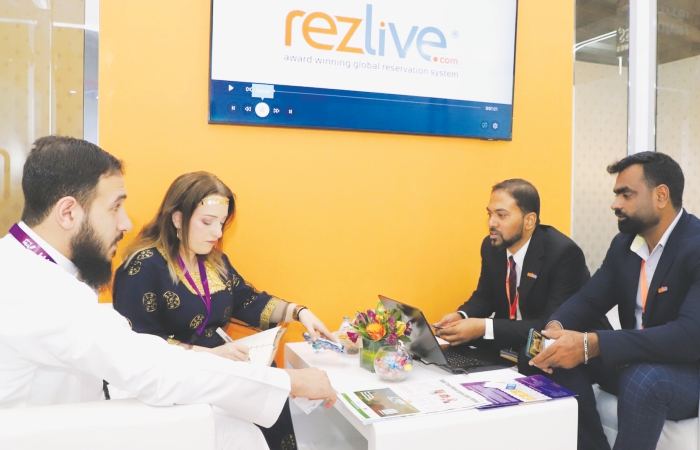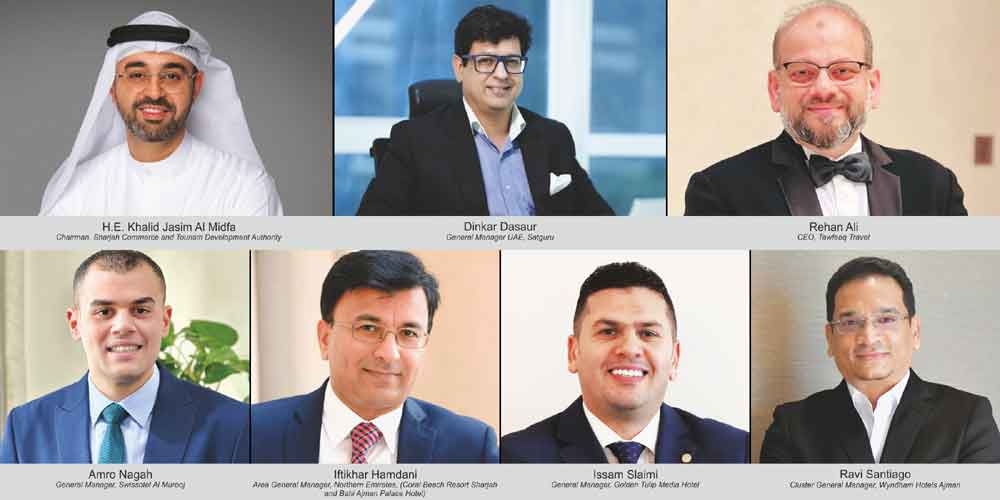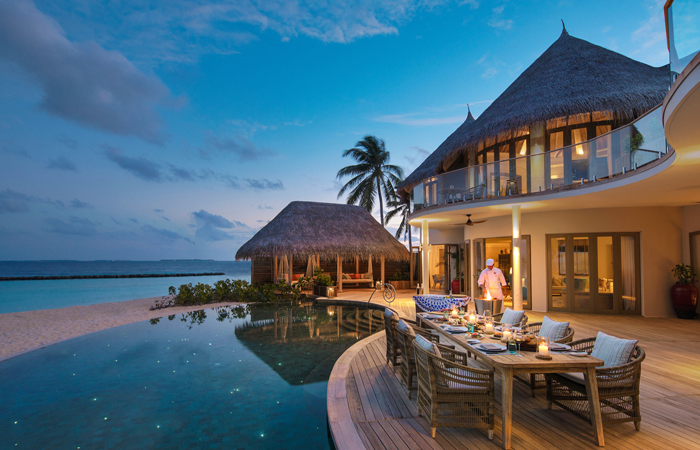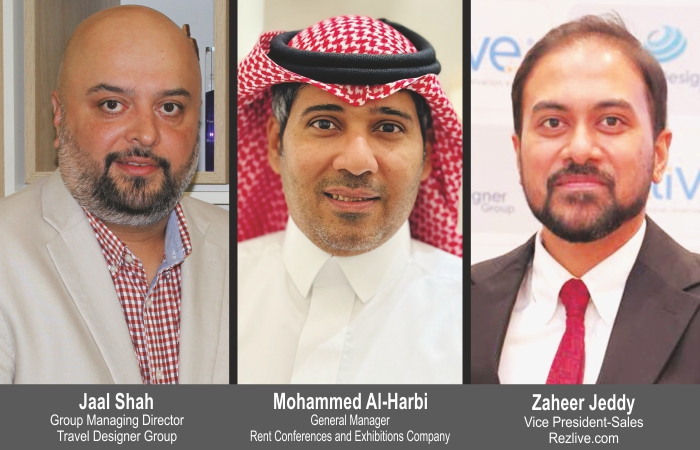The first session of the third edition saw Kimarli Fernando, Chairperson, Sri Lanka Tourism; Gerald Lawless, Ambassador WTTC and Former CEO Jumeirah Group; and Tim Cordon, Area Senior Vice President Middle East and Africa, Radisson Hotel Group speak about the luxe market, staycations, safety protocols & initiatives, action plans for the new normal.
Shehara Rizly
At a time when the silver lining is still not within reach, keeping the faith, gaining the confidence of the travellers and the new definition of luxury are core elements that ensure the industry offers its best. In most cases, proactive governments were able to tackle the situation and as the saying goes, nipped it in the bud.
The luxury market
In her opening remarks, Kimarli Fernando, Chairperson, Sri Lanka Tourism, stated, “The government took immediate action with regard to handling the COVID pandemic, this has resulted in us opening up the market already for domestic tourism.
With regards to the luxury market, we have identified Middle East and India as key markets going forward. Slow tourism, wellness, adventure, wildlife, everything that Sri Lanka has to offer is something that we need to work on further. Luxury market requires a particular kind of product, a particular kind of experience; the government has identified them, and we have got expertise involved to assist us. We are focusing on how we will improve the product. Having said that, there are several luxury brands already in Sri Lanka and this is an area that we will further build on.”
Talking about charter fights and private jets, she said, “There are several flights, there are about 600 private jets in India alone, so we get several requests on the private jets side, so I am confident about the luxury market for Sri Lanka. We didn’t have a lot so we are starting with a lower base. I think that there is opportunity for us as we have five airports in our small island; you can not only come in your private jet, you can take a domestic flight all over Sri Lanka in 45 minutes if you take a seaplane, so I am quite confident that we will be able to work on something.
At the moment it takes 72 hours to bring a charter flight, but we will be changing it to 24 hours for the charter flights and private jets and so on. We have also reduced the pricing at the new Mattala airport to encourage charter flights as well as private jets. Very close to Colombo we have opened an airport exclusively for private jets and small aircrafts which is about 15- 20 minutes away from the city.”
Gerald Lawless, Ambassador WTTC and former CEO of Jumeirah Group, started off by saying, “In order to get luxury or any type of travel going I would personally like to see a lot more coordination between governments on the protocols as there are too many different protocols in too many different places. I do believe that we need to have the facilities to make it easy for people to travel, and to make it possible for them to travel in a very safe environment, so lots of initiatives are being taken and one I am aware of is the initiative by WTTC with Safe Travels which has over 90 destinations with safe travels as their protocol to offer confidence to the travelling public that when they come to a destination, stay in a hotel, fly in an airline, they would be safe.”
“I hear a lot as well about how private jets have really literally taken off in the past several months in terms of the amount of the increase of year-on-year 300-400 per cent usage increase from 2020 over 2019 which is one of the segments that is showing a huge growth but I think once the airlines continue to open up as we see now with Emirates in Dubai, their very fine first and business class will have a big growth in that area as well,” he added.
Rapid testing at airports
Talking about the testing procedures at airports, Lawless said, “We need to develop a testing system that is more instantaneous, almost like a litmus test to show on the spot, like testing negatively for COVID-19. What I would really like to see is that the testing procedure is very much part of the check-in procedure at the airport. So the traveller will go to the airport, the first step would be the test, 30 seconds or two minutes later he/she would have their test results and can proceed to the check-in, then everyone would know that everyone on that aircraft tested negative and then the receiving country could also do the testing. Also, since the testing protocols are so rapid they can also be shared with the receiving country and you don’t need to be in quarantine. If you don’t have quarantine, I believe more travellers will have the confidence to travel again, go on vacation etc. Rapid result testing in my opinion is one of the takeaways.”
Fernando shared, “Building trust is critical. Currently we have purchased the latest testing system which gives results in one-and-a-half hours. The technology is from Denmark and we are using it at airports. Testing I think is important, the fact that hotels are ready since April, and we opened for domestic tourism by end of May, so hotels have been practicing all the guidelines. KPMG is doing the auditing and certification process for us so we are taking all the necessary steps. We are not only building confidence with the consumer, travel agent & the tour operator but with everybody who has contact with Sri Lanka. Everybody wants safety, this is something we are looking at and we are getting some international aid agencies to assist us with capacity building on PCR testing. Our government health officials are not very happy about the rapid test which is available now, so we are continuing with PCR testing.”
Tim Cordon, Area Senior Vice President Middle East and Africa, Radisson Hotel Group, said, “I fully agree with what Gerald said, rapid testing is absolutely the key to any kind of tourist business, luxury tourists are in the same situation as everyone else right now. We can’t get things moving in a meaningful way until people have the confidence to travel. As a hotel operator we are doing a lot of things to try and give people that confidence to travel, we have partnered with a testing agency called HGS while it’s my job to promote Radisson. I’d say all hotel companies are doing a great job in working with various testing organisations to ensure the hotels are clean and safe and the right protocols are in place.
But that only goes so far when governments and countries are able to close borders and reopen again very quickly and put you on notice as we have seen in Europe. The fear and concern around travelling tends to outweigh the desire to go and experience a new destination or have that amazing trip our hotels can provide so the fundamental issue right now is how do we get over that hurdle. Rapid testing would be a massive step towards that.”
Spike in domestic staycations
Lawless shared, “There is a spike in staycations. We can see that people are rediscovering their own country. I think that’s an area of tourism perhaps that has not been addressed so seriously in the past. It’s a great source of business as well for all of us and I think this is particularly the case in the luxury side as well within the UAE. I serve on the advisory board of the Ras Al Khaimah Tourism Development Authority and I can see how successful Ras Al Khaimah has been in encouraging staycations and getting people to explore their own country to find out what it has to offer. I believe, in the luxury side we are going to see people looking for safety, looking for a certain amount of isolation when they are on vacation, so we can see the independent villas, chalets and parts of resorts becoming extremely popular. I think this will continue to grow very strongly in the luxury sector. Individual types of accommodation, like large rooms, individual chalets and villas will continue to be popular within integrated resorts.
Reiterating the comment made by Lawless on staycations and individual products, Cordon said, “We have an amazing Radisson luxurious resort just outside of Riyadh Kingdom of Saudi Arabia which is a collection of 18 private villas and very private pools in an integrated resort, that’s one of the few businesses we have that is doing far better than it did in the previous year. So that really demonstrates the strength and the demand is there and that people really want to go and have great experiences but in a safe environment. In terms of the offering I will touch on a few things, there are redefined 20 very straightforward protocols for every hotel we need to implement to ensure the safety of our guests and our teams during this difficult time.
For the guest experience we really aren’t going to change too much, fundamentally hoteliers are there to provide great service and memorable experiences, and it’s never been more true than in the luxury sector. One of the things that COVID-19 has given us is the opportunity to look at how we do that, sadly our hotels are operating at a lower occupancy than they have done previously but that gives us the opportunity to take more time and provide a more individualised service to our customers. We can really take a lot more time and adopt a personalised approach for each guest, that’s not something that has been really possible to do in a sustained way, so whether it’s personalised toilet amenities in the bedroom with the guest name on it or an individual welcome and finding out a lot more about customers and tailoring experiences specifically around them – these options are available to us, that’s how we are going to alter our offering.
Of course we have also embraced technology, particularly artificial intelligence, especially around the business traveller, so online check-in, contactless experiences at the hotel are more important. Right now we are focusing on how we individualise our guest experiences to give them something that blows them away and that’s what hospitality should do and always has been around doing.”
WTTC initiatives
Lawless said, “When it comes to the safe travel protocols of the WTTC, Gloria Guevara, President and CEO of the organisation is trying to achieve through them some form of consistency on a worldwide and international basis within the travel industry so that people can recognise, okay, that airline, that hotel, that destination, they have now committed that they will apply all the protocols that have been listed out, which has been drawn up in consultation with the WHO and UNWTO has also been involved to ensure that they are relevant, that they make sense and will help prevent infection in an area, on an aircraft, in a hotel, wherever it might be. So therefore the establishment agrees to within these protocols to allow themselves to be open for orders but most importantly they sell forward what they have to promise their guests that they are complying to these protocols so when it comes to how the room is disinfected, how it is used or not in between occupation between guests, everything that’s going on throughout, all the various protocols do apply. This has given a sense of security to many people. Also my former company Jumeirah Group has been involved with Bureau Veritas with their system called safeguard which they have applied to many of their hotels and Ras Al Khaimah has also been involved with WTTC and Bureau Veritas. I think that these protocols will continue to be really important to give guests the opportunity to feel comfortable coming in.”
Cordon added, “I would like to congratulate WTTC for trying to get a global standard and it is important to get a global standard that everybody complies with and understands. I think the industry is leading when it comes to implementing a global standard, but we have work to do in communicating that to our customers.”
Updates
We are getting some international aid agencies to assist us with capacity building on PCR testing. Our government health officials are not very happy about the rapid test which is available now, so we are continuing with PCR testing. — Kimarli Fernando
There is a spike in staycations. We can see that people are rediscovering their own country. I think that’s an area of tourism perhaps that has not been addressed so seriously in the past. — Gerald Lawless
I would like to congratulate WTTC for trying to get a global standard. I think the industry is leading when it comes to implementing a global standard, but we have work to do in communicating that to our customers. — Tim Cordon
Updates
In the past Sri Lanka Tourism looked at countries such as India, Middle East or Germany etc., but now we will be focusing more on the type of tourists and what they are looking for and what we have to offer them. — Kimarli Fernando
The G20 meeting will be held on November 21-22, 2020, in Riyadh, Saudi Arabia. The two-day summit will focus on travel and tourism this year. Gloria Guevaro, President of WTTC has been very effective in linking in with the G20 nations. — Gerald Lawless
COVID-19 has been a catastrophe but one of the opportunities that exists is to re-profile our industry. It doesn’t have the profile that it should be given – our industry was hit hard, and this gives it a better voice to be heard at the G20 summit. — Tim Cordon
 TravTalk Middle East Online Magazine
TravTalk Middle East Online Magazine
